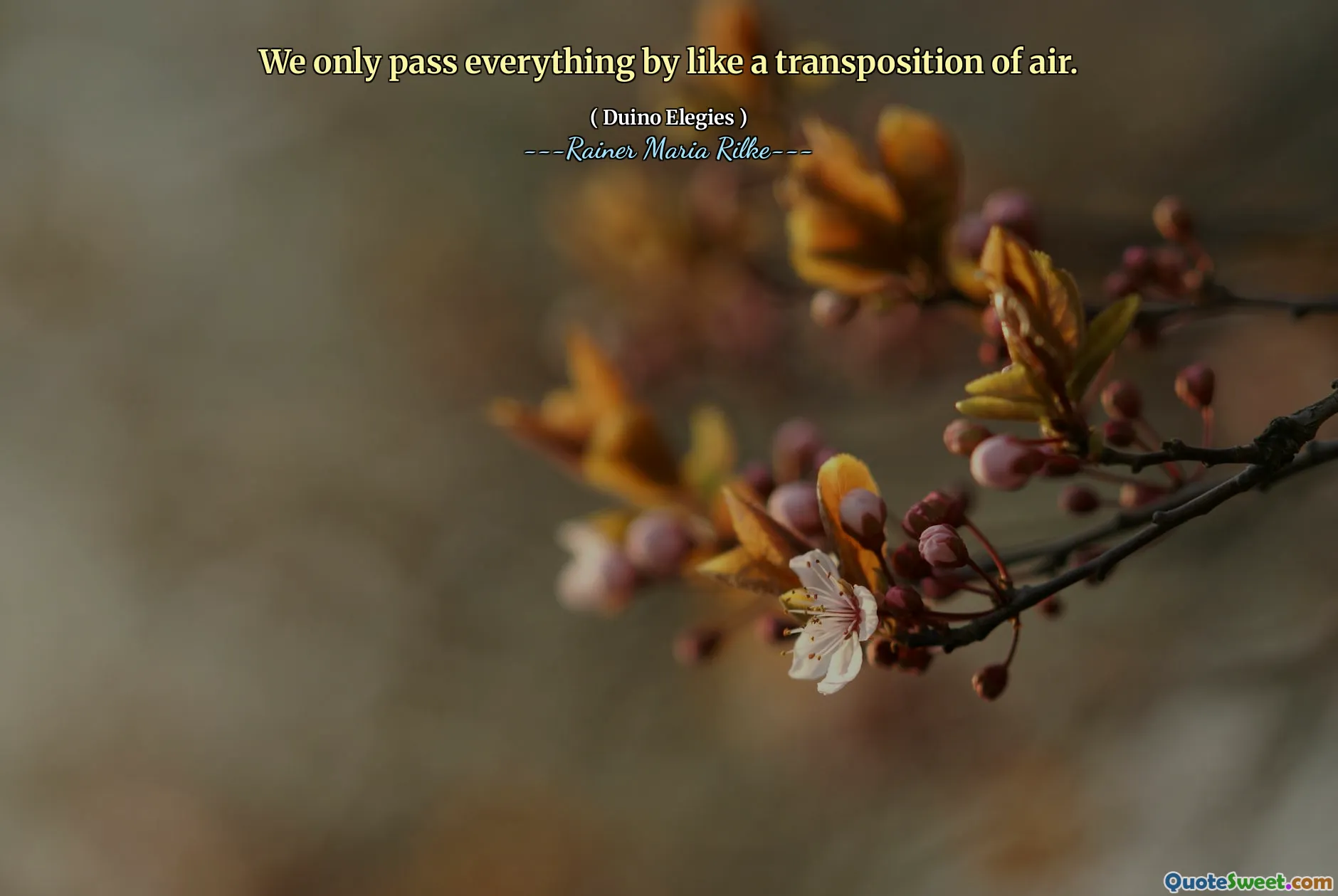
We only pass everything by like a transposition of air.
This quote from Rainer Maria Rilke's Duino Elegies encapsulates a profound and almost ethereal observation of passage and impermanence. The metaphor of "a transposition of air" suggests an imperceptible movement, subtle and barely noticed, yet continuous and inevitable. It hints at the way we experience life and events—not with permanence or immovability, but rather as something fleeting and transient, just like air shifting from one place to another. Our interactions, emotions, and experiences pass through us as intangible as air, never truly fixed or grasped.
Reflecting on this, it becomes evident how life is characterized by constant change. Even moments that seem significant dissolve into the flux of time, reminding us that nothing stays stagnant. Rilke’s wording invites humility, a kind of surrender to the natural flow rather than resistance to the ephemeral nature of existence. This impermanence can be disconcerting, yet there’s a beauty in recognizing that every moment is transient, encouraging presence and appreciation in the now.
Moreover, the quote portrays life’s moments as not just fleeting but harmonious in their transposition—akin to music, where a transposition shifts tones up or down but retains the essence. It suggests that while everything changes, there is an underlying rhythm and order to this fluidity. This may inspire a deeper acceptance of life's uncertainties, helping us to embrace the shifts with grace, understanding that we are part of a larger, unfolding movement.






